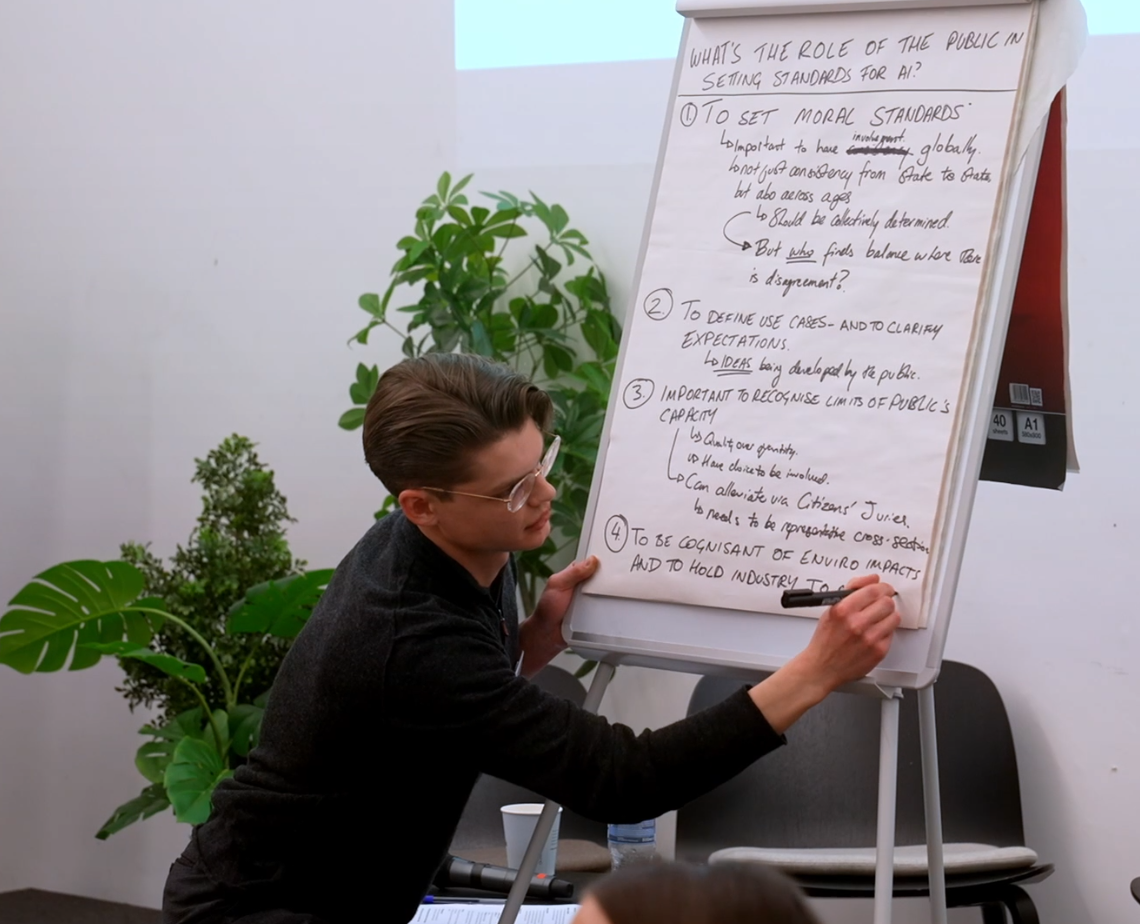
Event overview
Over the past two years, we have seen an explosion in Generative AI technologies. But how does the public feel about these changes? What are their hopes and fears for these new tools? And how do they perceive responsibility, safety, and trustworthiness?
The People’s AI Stewardship Summit brought together a mix of diverse voices: the public, industry, policymakers, and academics. The aim was to listen to what the people of Belfast want from AI, ensuring their preferences are heard as we shape the future of these technologies.
Sessions
Introduction: AI opportunities and risks
An introductory keynote speech giving an overview of the current AI landscape and emerging trends.
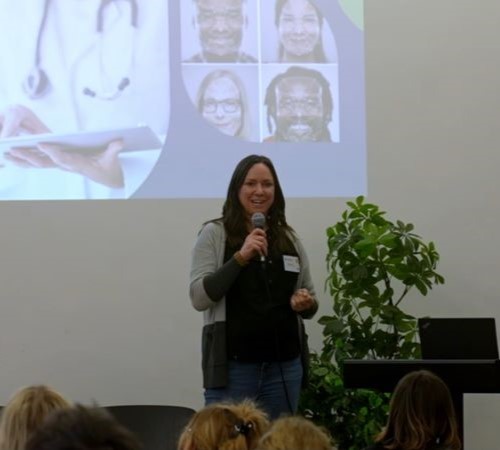
Key note speaker: Dr Mhairi Aitken, Ethics Fellow, Alan Turing Institute
Dr Mhairi Aitken researches AI Ethics at the Alan Turing Institute, the national institute for data science and artificial intelligence. Mhairi provided an expert voice on the day, framing discussions on AI safety and how AI is already having an impact today.
To Mhairi, AI safety means understanding the risks but also maximising the value of technology and innovation across society.
When we think about AI safety, we’re thinking about individuals, communities, and wider society.
Poster presentations: Visions of a post-AI society
The next portion of the day asked the participants to share their personal hopes and fears for AI in different settings, and to create posters to share their collective visions for AI in Belfast.
Several common themes emerged from the poster presentations. Explore the themes below.
1. AI should bring people joy
AI should make life easier. Participants hope that by supporting menial daily tasks, AI could grant us more time to do things we enjoy, like gardening, and will help us to create “home-centred” communities.
We’re hoping for a 3-day working week.
2. AI could make us feel safer
Participants hoped for assurance about how AI is being used, with multiple groups advocating for a solid watchdog. With robust oversight, they envisaged that AI could prevent conflict and make society safer.
3. AI could deliver health benefits
Groups envisioned that massive medical and wellbeing advances are on the horizon thanks to AI, with innovations ranging from a “doctor in the pocket,” to an AI agony aunt, to proactive and preventative data collection supporting public health.
4. AI must be accurate and reliable
When fish ingest other fish, they build up pollutants (such as mercury). Similarly, as AI models are trained on content produced by other AI systems, and pre-existing datasets, they can amplify biases and discriminatory outcomes.
Ensuring the integrity of AI models emerged as a priority, with participants expressing the desire for high-quality, trustworthy data sources and AI systems capable of managing unintended consequences.
How will AI lead to
a ‘happy fish’ rather
than a ‘sad fish’?
5. AI should be regulated globally
In their vision boards, participants expressed the desire to have a voice on regulation and standards related to AI. Participants also voiced their desire for regulation to be global.
There’s a need to balance a smart use of money with the risks of privatisation and profitmaking.
6. AI must be accessible to everyone
Participants hope that AI can be delivered to all and that everyone will feel equipped to make use of it. In their imagined futures, the wealth AI generates will be delivered across the local community, saving and making money for the many, not the few.
We don’t want a niche tool for the already advantaged.
7. AI could make humans better
Participants hoped that AI will change humans for the better, enabling people to be more creative, less biased, more well-rounded, and with a better understanding of different cultures.
Panel session: Expert reflections
The three expert panellists responded to the ideas shared on the posters by public participants and other stakeholders, chaired by co-facilitator Anna Beckett
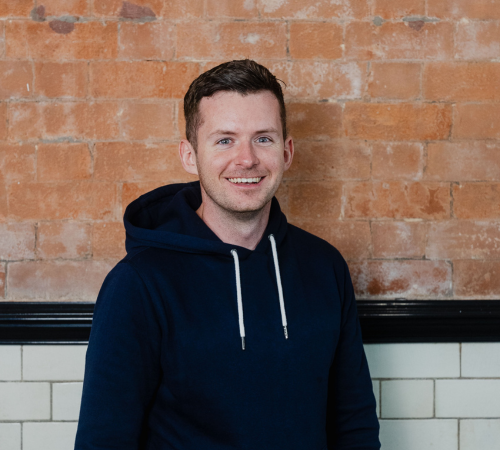
Ryan Donnelly, Enzai Technologies Ltd
Co-founder of Enzai Technologies Ltd, and a member of the Enterprise Hub's Regional Talent Engine programme, Ryan is a lawyer advising legal firms worldwide about their technological responsibilities. His work is about regulating AI while still allowing the technology to flourish.
During the panel Ryan noted a disconnect between the consensus in the room that AI should be regulated and the UK government’s current approach. Reflecting on participants' hopes, he suggested that we aren’t likely to see a 3-day working week any time soon; instead, we’ll be expected to deliver more and faster.

Holly Toner, Kainos
Senior AI Engineer in the Technical Foresight team at Kainos, a digital transformation consultancy, Holly has experience working on a variety of proof-of-concept projects that demonstrate the value of emerging technologies.
During the panel Holly suggested that a ‘scores on the doors’ style initiative, like that used in food safety, could instil confidence in AI without requiring deep technical knowledge.

Dr Clare Rainey
Lecturer in Diagnostic Radiography at Ulster University. Clare researches uses of AI systems in medical decision-making.
Clare highlighted that many AI technologies are being underused. In a clinical setting, some clinicians are more likely to go out of their way to seek new tools. For those less inclined to adopt AI, she’d like to see these technologies meeting them halfway, giving them the information they need in an interrogatable format.
Open discussion and reflections
For our final facilitated discussion, participants chose to explore three distinct topics in smaller groups, changing groups halfway through.
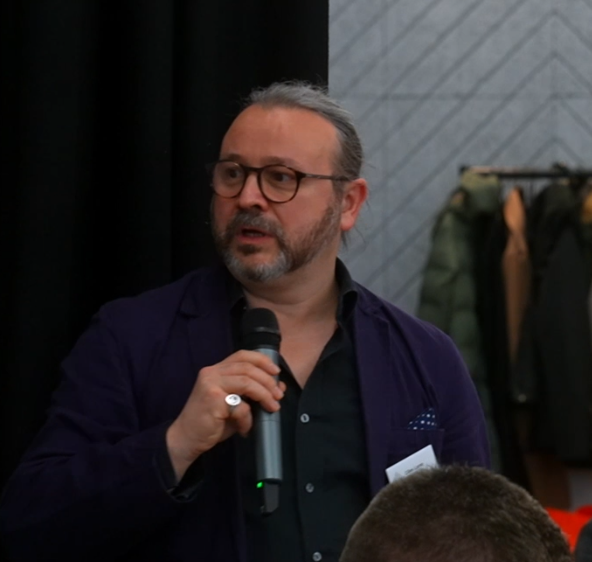
How can local businesses be supported to use AI effectively and responsibly?
This group found it easy to think of how small and medium businesses could use AI, but it was trickier to imagine how AI could be used in (and deliver benefit to) microbusinesses like a local butcher or high-street shop.
Participants also reflected on trust. We unthinkingly put our faith in people every day, like bus drivers and manufacturers, assuming they have done their due diligence. AI also requires safeguards, and we expect it to meet similar standards, yet many of these safeguards remain unknown.
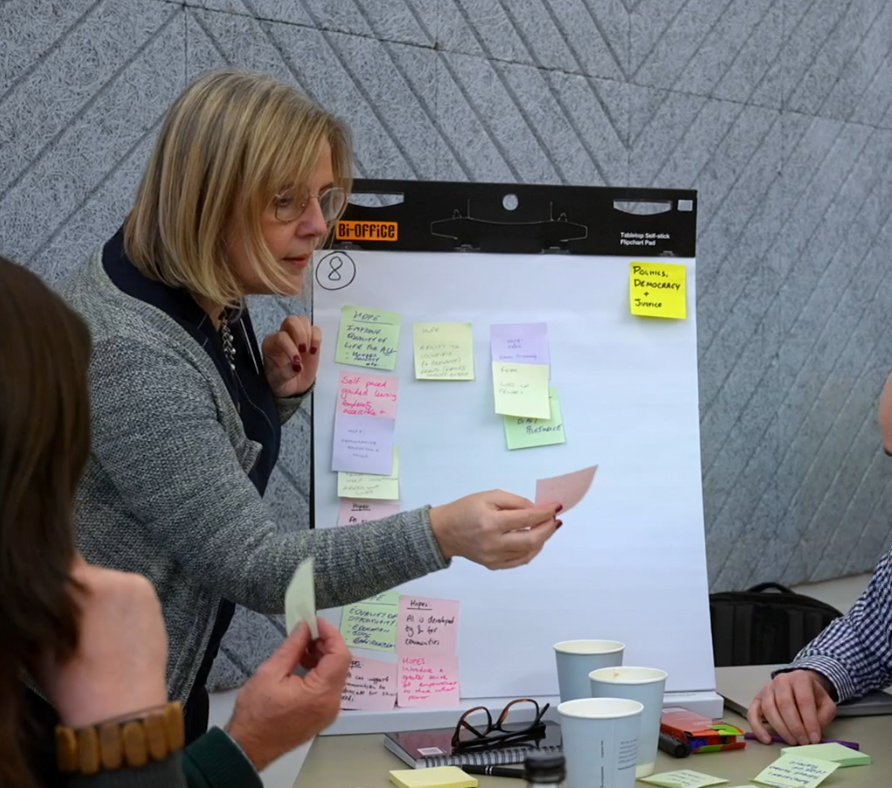
What tangible ‘markers of trust’ are needed for you to feel confident in AI and how it is being used?
In answering this question, it became apparent that we tend to trust some organisations more than others. The NHS, for example, was high up on participants’ trust rankings, as were recommendations from their peers.
The group assumed AI products have been verified and tested, by competent individuals and teams before reaching the consumer, and they’d like to see this overseen by an independent regulator.
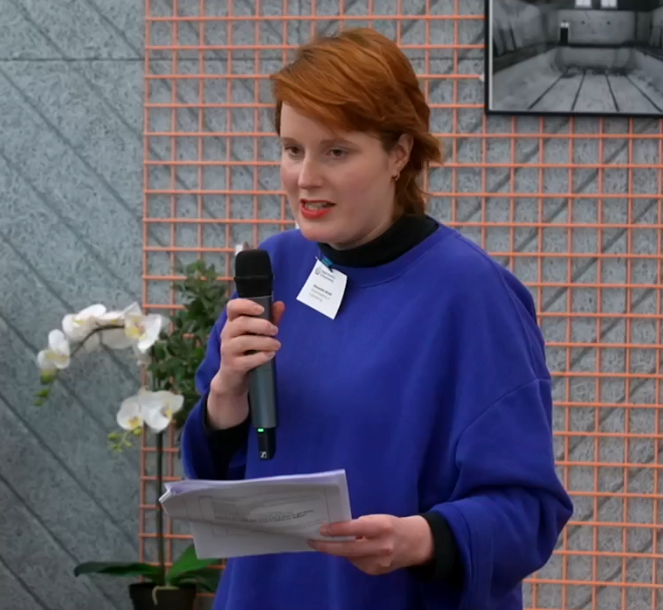
What is the role of the public in setting standards for AI? Where and how should the public be involved in the AI safety assurance process?
The consensus was that it’s up to everyone in the sector to foster transparency, providing the information for people to make informed choices.
AI will be globally influential, so they want to see people included from different countries and of all ages. What people wish to see may vary from country to country.
Participants want to know, right from the initial stages, that AI is being built with the correct principles in mind by a person. AI should serve as a tool rather than a substitute for moral judgement.
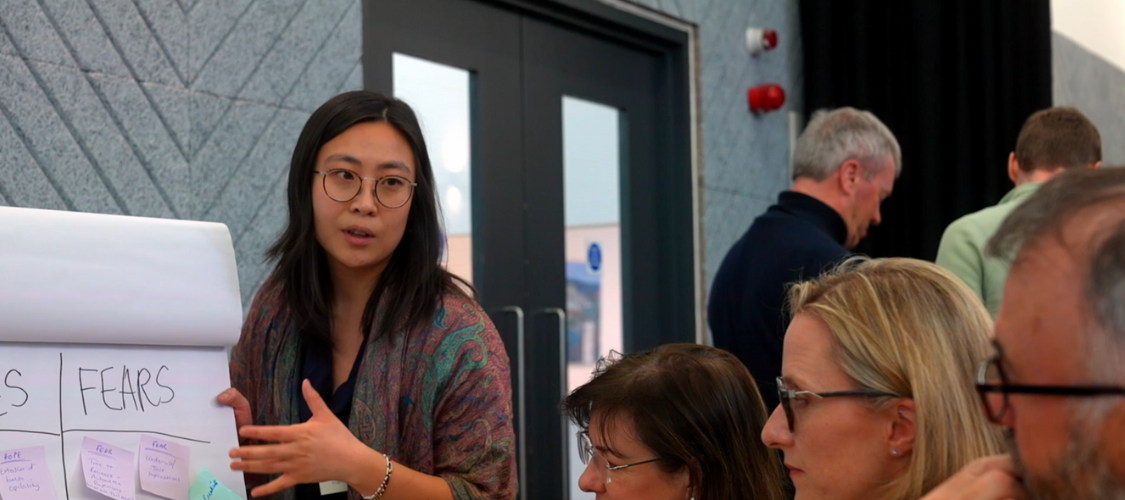
Hear from the public on AI
Members of the public were invited to share their views on a number of questions:
- Why do you want to share your views on AI?
- Do you have any hopes and fears around AI?
- How confident are you that the benefits of AI will be seen locally?
- What have you heard today that inspires you to feel confident that AI will be trustworthy?
- What might you look for as a reason to trust AI?
Explore all the videos in a playlist.
Related policy work
Futures and Dialogue
Using foresight techniques and engaging with the public and other stakeholders to inform policy and policymakers.
Data and AI
The Academy has undertaken a wide range of projects on the role of data and artificial intelligence (AI) in shaping the…
Engineering Responsible AI
The Academy's Engineering Responsible AI campaign explores how the emerging technology of artificial intelligence (AI)…
Engineering policy
The Academy provides independent, authoritative advice to government. The Academy also responds to Parliamentary, gover…
